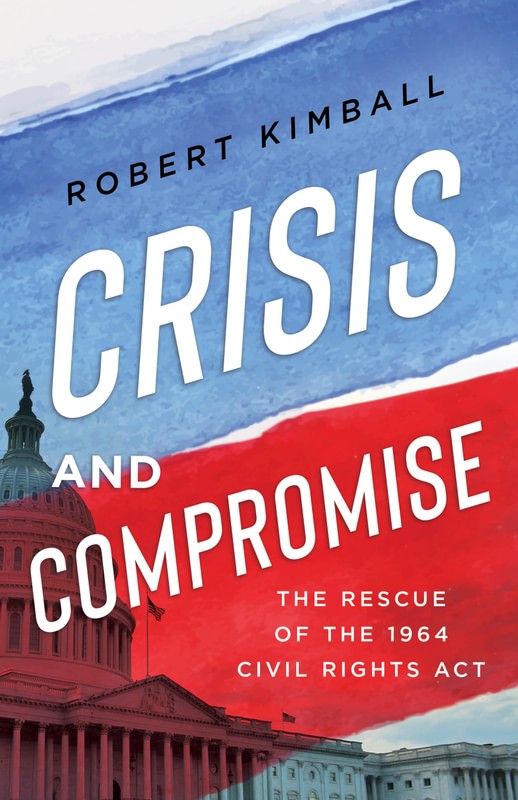Crisis and Compromise
The Rescue of the 1964 Civil Rights Act
1963, a year suffused with unrest and widespread demands for change, was a turbulent period in our nation’s history. It was a time of freedom rides, sit-ins, demonstrations, and protests, all leading to the momentous August 28th March on Washington, Reverend Dr. Martin Luther King Jr.’s iconic “I Have a Dream” speech, and, ultimately, passage of the landmark Civil Rights Act of 1964, which delivered a historic, legislative blow to discrimination and inequality.
In a vivid narrative, Robert Kimball provides a comprehensive, first-hand account of the largely overlooked role House Republicans—chiefly Representatives John V. Lindsay, Charles Halleck, and William McCulloch—played in the successful enactment of the Civil Rights Act. From the Birmingham church bombing to the crisis and compromise of late October, which preceded the affirmative vote in the House of Representatives on February 10, 1964, Kimball sheds light on what can be achieved with patience and true bipartisanship. His memoir reminds us of what is possible in the continuing struggle for equal rights and social justice when political differences are put aside for the greater good.

